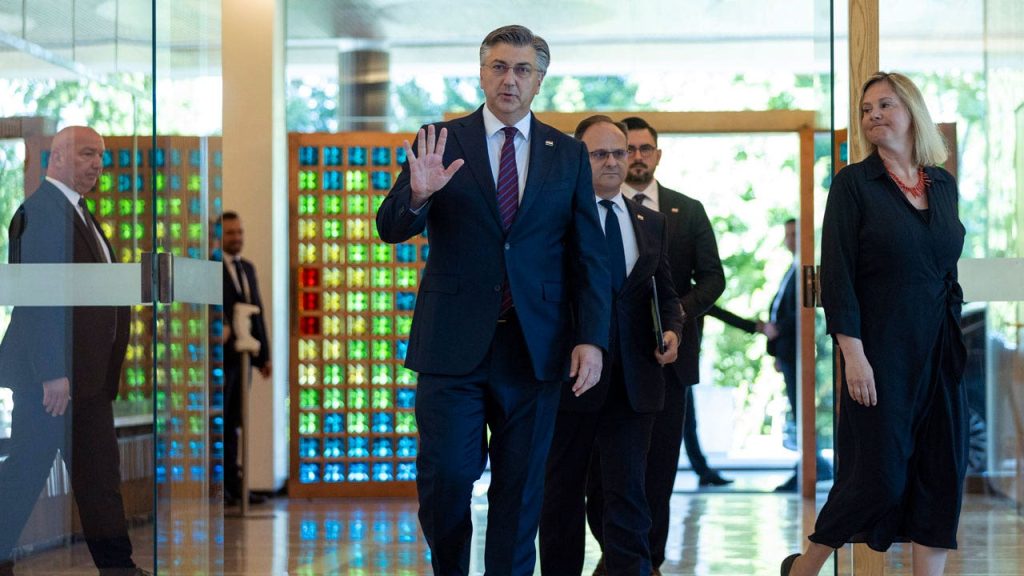Croatian conservative leader Andrej Plenkovic has been appointed prime minister-designate for a third consecutive term after forming a coalition with the far-right Homeland Movement party following an inconclusive election. The ruling Croatian Democratic Union party won the most votes in last month’s parliamentary vote but needed the support of another party to secure a majority. Plenkovic’s new government will have a slim majority in the 151-member assembly, leading to potential political uncertainty. For the first time in years, Croatia’s government will not include a party representing minority Serbs due to the Homeland Movement’s opposition, sparking concerns about ethnic tensions.
Plenkovic’s new Cabinet is expected to push Croatia further to the right ahead of the upcoming European election, as the continent grapples with a war in Ukraine, climate emergencies, migration, and other issues. The Homeland Movement is a relatively new political party in Croatia consisting mainly of radical nationalists and social conservatives who split from the center-right HDZ. Led by the hard-line mayor of Vukovar, a town destroyed during Croatia’s 1991 war for independence, the DP’s exclusion of minority Serbs from the government has raised fears of ethnic tensions resurfacing from the 1990s conflict.
Since Croatia’s independence, the HDZ has predominantly held office, with the country becoming an EU member in 2013 and joining Europe’s passport-free travel zone and the eurozone in the following years. Plenkovic’s coalition with the Homeland Movement has the potential to shift the country’s political landscape further to the right, impacting future policy decisions and relationship with other EU members. Despite this, Plenkovic remains committed to working towards progress in his third mandate, as he looks ahead to addressing pressing issues both domestically and abroad.
The appointment of Andrej Plenkovic as prime minister-designate for a third consecutive term marks a turning point in Croatian politics, as the ruling party forms a coalition with an extreme right party. With a slim majority in parliament, there is speculation about the stability of the new government and how it could impact ethnic relations in Croatia. As the Homeland Movement becomes a significant player in Croatian politics, concerns have been raised about the exclusion of minority Serbs from the government and possible repercussions from the 1990s conflict.
The Homeland Movement’s emergence as a political force in Croatia, composed of radical nationalists and social conservatives, sheds light on the changing dynamics within the country’s political landscape. With the potential shift towards the right, Croatia’s position within the European Union and its stance on various global issues could be influenced by the new government. Plenkovic’s commitment to progress in his third term highlights the challenges and opportunities that lie ahead for Croatia, as it navigates internal and external pressures in an increasingly complex geopolitical environment. The exclusion of minority Serbs from the government raises concerns about ethnic tensions and the need for inclusive governance in a country still grappling with the legacy of its violent past.


